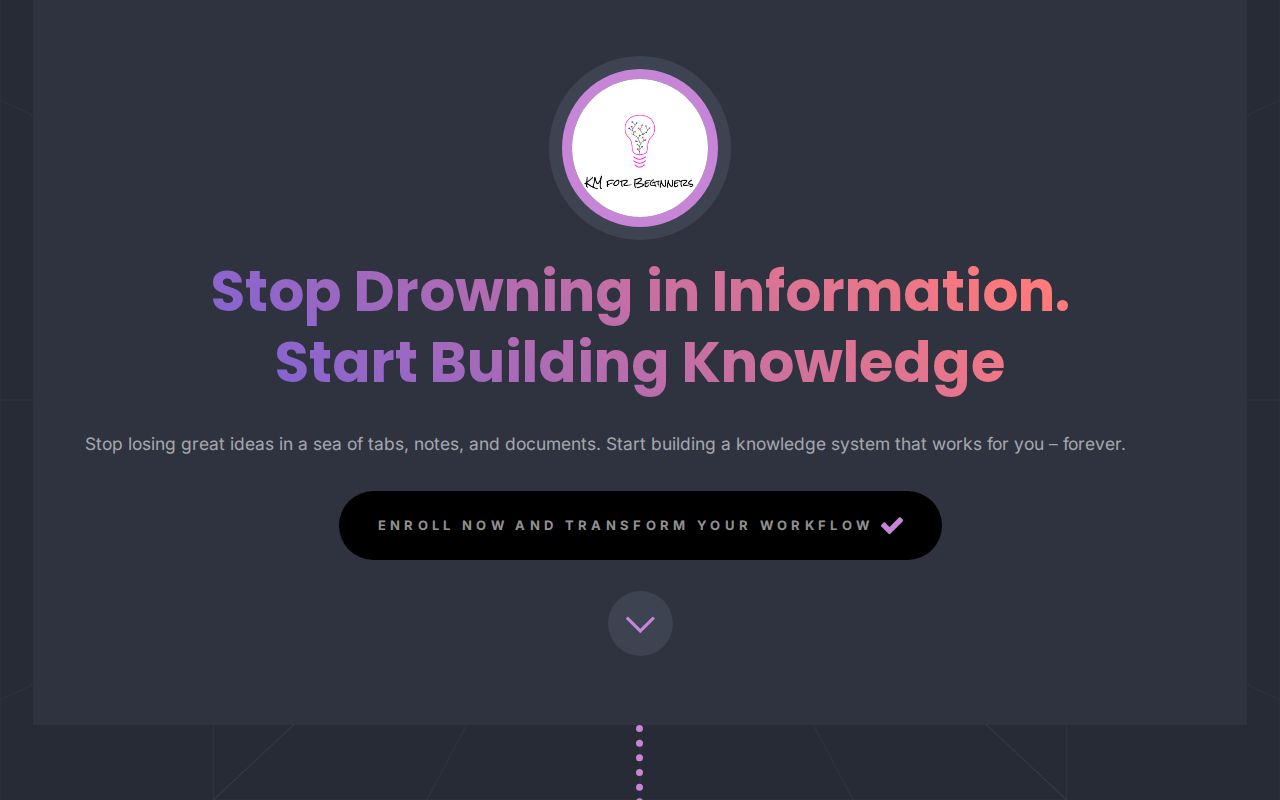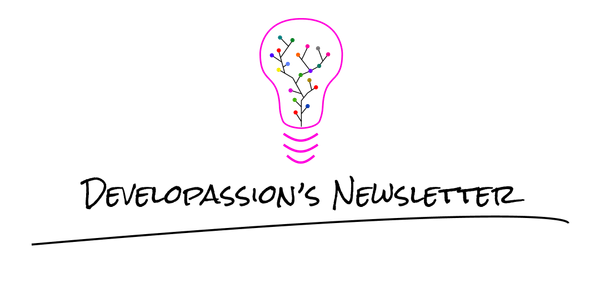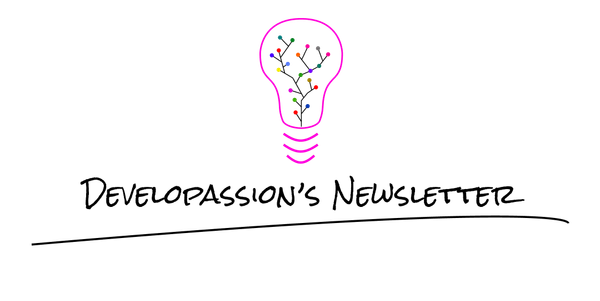How I Organize My Work As a Solo Founder
Discover how I organize my work as a solo founder using systems that boost productivity, focus, maintain balance, and help me achieve mental clarity and consistent progress.

In this article, I want to describe how I organize my work as a solo founder. I will cover the main systems that help me stay on top, plan ahead, focus, execute, look back, and remember everything.
Introduction
I've always been passionate about personal organization and (sane) productivity. My deep interest in Knowledge Management has led me to build systems that bridge all the parts of my life and support everything I do, whether for work or leisure. I've been working on this for years, and I'm now at a point where I know I have a solid system that I can rely on.
I strongly believe that the killer combo for "success" is the combination of:
- Periodic Reviews
- Journaling
- Knowledge Management
- Zen Productivity
- Time Blocking
- Backlogs
- Habits/Routines/Processes
The order is not relevant. Each element is as important as the others. It's the combination that makes the difference. As the saying goes, the whole is more valuable than the sum of its parts. In the rest of this article, I'll cover each of those, and will try to convince you that combining those is the key to help you get things done, efficiently, and consistently.
Here's a high-level overview:

If you want to take the fast lane and reuse my system, then check out the Knowledge Worker Kit:
Systems Thinking
At the core of everything I'm going to describe is the concept of Systems thinking. Systems thinking is an approach to problem-solving that focuses on the idea that everything is interconnected. Rather than focusing on individual components in isolation, systems thinking emphasizes the relationships, patterns, and dynamics among parts within a whole. It's a holistic approach. It enables identifying leverage points: areas where a small shift can lead to significant improvements.
In practice, systems thinking involves mapping out the components of a system, identifying feedback loops, and understanding how different elements influence each other over time. By focusing on the broader context and long-term effects, systems thinking enables developing more sustainable, resilient, adaptive, and effective solutions.
To be functional, effective, and efficient as a whole, systems need to be designed. Unfortunately, many people fail to view many things as systems, and they fail to design theirs, letting those grow organically. This is often chaotic, and far from ideal.
To design systems, it's useful to think about:
- Positive and negative feedback loops
- Effects are exponentially magnified by feedback loops.
- Virtuous circles
- Bottlenecks
- Patterns
- How to reach and maintain equilibrium
Everything is cause and effect
This is not an article about Systems Thinking, so I'll leave it at that, but it's definitely a topic worth investing time into. Check out the following article if you want to learn more about the other systems I rely on.

Keep in mind that what I'm discussing here is actually a carefully designed system.
Periodic Reviews
What are Periodic Reviews and why should you care?
Most of the people I know never take a minute to stop and think. They focus on doing and reacting. They don't take (enough) time to reflect, think, or plan. Don't be like them. You need to regularly take time to Meet with yourself.

Periodic Reviews are essential to make sure that you are moving in the right direction (i.e., towards your goals) and to adjust course if and when needed. The core idea is to focus on you, your goals, your priorities, and to work toward the future you want for yourself. It's all about physical health, mental health, happiness, life, self-alignment... and work. Of course, it first requires having enough clarity about your values, and goals.

The idea is simple: I use Time blocking to reserve time at different intervals:
- At the end of each day
- At the end of each week
- At the end of each month
- At the end of each quarter
- At the end of each year
I have actual calendar appointments and reminders defined for most of those. Periodic reviews set the rhythm for my work and life. Each periodic review is an opportunity for me to:
- Look back: what went well, what didn't, why
- Look forward and prioritize: what's next
- Make sure I'm still on track
- Adjust my goals and plans
At each time horizon (day, week, month, quarter, year), I take the opportunity I need to:
- Think
- Plan
- Act
- Review
- Adapt
Don’t worry though. You don’t have to perform all of those. You can Start small, and expand from there if you feel like it. I recommend doing at least daily and weekly reviews.
Daily Reviews
Daily reviews should take 5-10 minutes at most. During those:
- I identify what I feel grateful for
- Consider the work I have not made significant progress on and try to understand what the problems were
- Plan the next day, and identify the Most Impactful Next Task (MINT) (aka Highlight of the day)
My goal is not to dwell on the past, but identify actions I could take in the future to make my days less overwhelming, more motivating, more productive, etc.
Daily reviews help me be more objective, stay on track, have clear immediate priorities, and avoid wondering "Where has my time gone?" at the end of the week.
Weekly reviews
At the end of each week, I also take time to look back, but this time, I focus on a longer period: the past week. I look back at what I have achieved, the problems I have faced, summarize my lessons learned and my progress, clear my inboxes, etc.
During weekly reviews, looking back helps me notice trends and recurring patterns. Again, I focus on continuous improvement.
Most importantly, I also use weekly reviews to make plans for the next week. I take a look at my goals for the month, ensure my priorities are still clear, and reserve time blocks for my most important work.
Generally speaking, those take ~15-60 minutes. Sometimes more, sometimes less.
Monthly, Quarterly and Yearly reviews
The more you zoom out, the more strategic periodic reviews are. But the base principle is the same for each: look back, observe, be real, adjust course, and plan ahead. The only difference is the potential impact of the decisions, and the amount of work it implies. Monthly reviews can make or break a project. Yearly reviews can change your life.
Taking review notes
Whenever I do one of my periodic reviews, I create a dedicated note in my Personal Knowledge Management system. I do this in Obsidian, my favorite Tool for Thought (more on this later). I take notes because I want to keep track of my progress and details about the whole process. It leaves me with deep insights about my own journey, the way I approach my work, the recurring issues I face, etc.
Those notes serve two purposes:
- On one hand, they help me see trends and patterns more clearly
- On the other, they act as a personal log that I can use for inspiration and for sharing the lessons learned
The structure I use is simplistic:
- Goals: what I would like to achieve
- Achievements: what I actually managed to do
- Challenges: difficulties I've faced
- Discoveries: wonders I've discovered, things that inspired me
- Gratitude: what I'm grateful for
That's where journaling comes into the picture.
PS. The structure and templates I use are all part of my Obsidian Starter Kit, a system that is a 1:1 copy of my own.
Journaling
The second key element of my system is my journal. I have a daily note open on my computer all day long, every single day. It's not only a journal where I write about my life, my experiences and emotions. It's actually where I keep track of my plans, the tasks I want to work on, my achievements, my discoveries, and much more. Journaling helps me think, remember, reflect, and focus.
There's a lot more to journaling than what most people think... I've been journaling for a number of years, and it has helped me tremendously. It's one of the most valuable practices in my life. Instead of "Make your bed", I propose "Write your journal entry"
I keep my journal open all day long, and I keep adding notes while I'm working:
- Things I should do (action)
- Things I discovered (learning)
- Things I think about (thinking)
- Things I'm grateful for (gratitude)
The structure I use for my daily notes is simple, but effective:
- Plan for today: My TODO list for the day
- Notes of the day: Random notes, ongoing things, ideas, whatever
- Done today: What I have achieved
- Discovered today: What I have learned/explored
- Interesting links: Cool stuff I have stumbled upon
- Gratitude: What I'm grateful for
Whenever I'm in doubt about what I should be doing, I go back to my daily note. At the end of the week, during my weekly review, I go back to all those notes, and use those as input. What I call my journal is the combination of my daily notes, and periodic review notes.
Check out my articles about journaling:

Knowledge Management
Managing Knowledge?! People barely manage their TODO lists and files..
Knowledge Management is at the heart of my life and work. It supports me in all the areas of my life. And it's also my biggest source of frustration, because I see so many people who would benefit, but have never even heard of it. And I intend to fix that. It's actually my main priority right now, and one of the reasons why I'm writing this piece.
Everything I'm discussing here is, at least in part, somewhere in my brain. But if I'm able to express these ideas clearly, it's not just because I care. It's also because I have a system that sits outside of my brain, that I can rely on. Tiago Forte calls that a second brain. I call that a Personal Knowledge Management System (PKMS). And there's an associated process: Personal Knowledge Management Process.

Let's put all the theory aside. It's a topic I've already written a lot about, and I will continue to do so. Let me just give you the gist of it.
Personal Knowledge Management, helps me:
- Capture, retain, retrieve useful and interesting information, at scale
- Clearly express my thoughts, ideas, problems, etc
- Better organize myself
- Work smarter and be more productive
- Make better and more informed decisions
- Think deeply and introspect
- Learn faster, and more efficiently
- Create solid mental models
- ...
Just take a look at my public notes. Those are just a subset of my personal knowledge graph: https://notes.dsebastien.net And there's a lot more I keep to myself:

It's not just about fancy visuals. It's about creating leverage for myself. Thanks to this system, I have unlimited memory, perfect recall, and I am able to forget intentionally. In my Knowledge Management system, I have information about myself, my values, my why, my goals/priorities/projects/plans, my no-no's, my journal, my periodic reviews, my health, etc. It's my single source of truth.

By the way, I've shared more details about my PKM system here:

I'm so passionate about this topic that I'm actually about to release a course for beginners:

Zen Productivity
Very ambitious people are generally driven by results. They always try to do more. To the point of being labeled as workaholics. That implies that they say yes to most of the opportunities that cross their radar. But that's unsustainable. And once they realize it, it's often too late.
The underlying philosophy behind my work approach is what I like to call Zen Productivity. I care a lot about balance, sustainability, and health. I prefer being "unproductive" while others prefer hustling 90 hours a week, if it means feeling better and happier. I prefer to trade raw speed for meaningful progress, even in tiny increments. I'm ready to work hard when it makes sense and in the right conditions, but certainly not at any price. This is what has pushed me away from the "classical" startup mindset. It's deeply incompatible with the life I want to live. I have all I need in life. I'm happy with that. And while I do have ambition and dreams, they're not worth sacrificing precious moments with my family and friends.
There's something lovely about doing things slowly and at my own pace
I have clarity about where I want to go and who I want to be. But I also have limited time and energy. I am not always in the right mindset, don't always have enough energy, am not always motivated. And to me, it is OKAY. I can live with that. I do what I can, whenever I can. And I don't, when I'm not willing or able to. It's not laziness. It's just about respect for my myself.
Now don't get the wrong idea. I am working hard. Just not beyond my limits. It's all about reaching and maintaining a sane equilibrium. It's a combination of mentality, a different approach to work. As well as systems and routines to focus effortlessly on what really matters, manage time thoughtfully, and leave enough room for leisure/rest/recovery. There are three keys to that: mindfulness, simplicity, and flow.
I rely a lot on my periodic reviews to know when I need to adjust. And also my energy level in the morning ;-)
Time Blocking
As John Zeratsky and Jake Knapp said, to achieve great results, you have to Make Time for what matters to you. That is, time for your own goals.
Time blocking is a key productivity technique that I rely on to do just that. During my weekly reviews, while planning ahead, I add time blocks for specific work. When I enter those blocks, I focus as much energy as possible on making progress there. That's it. Plain and simple. it's really effective. And I actually do the same for rest, and other activities. The goal, again, is to have balance, and leave enough room for the rest of my life.
Note that without time blocking and scheduling, your time is at the mercy of others. If you don't fill your calendar yourself, someone else will do it for you. That's why I pre-allocate my time.
I also rely on an Ideal schedule for the week where I have imagined how I would allocate my time during an ideal week. It's NOT something I follow precisely. It's just a support to help me make decisions. In practice, many things prevent me from following it.
Here's an (outdated) example of what I mean:

To create that "ideal" schedule, I started by:
- Calculating how my sleep I needed
- Calculating how much time I had
- Listing everything I needed or wanted to spend time on
- How much time I needed or wanted to spend on that
Backlogs
Earlier in the article, I mentioned my daily notes, where I maintain the list of things I want to do next. That's my first backlog. It's the "NOW" backlog. But that's not the only one. Having all my tasks and ideas in a single place would be overwhelming.
I actually rely on multiple backlogs, that I mostly review/prioritize during my weekly and monthly periodic reviews:
- One backlog per project
- A personal backlog
- A "planned" backlog
In each of those, I use a Kanban-like approach, tring to limit work in progress. I rely on the following columns:
- Today
- This Week
- This Month
- This Year
- Later
Depending on the backlogs, I sometimes tag the items with the MoSCoW Method: MUST, SHOULD, COULD, to help me filter out the noise. When it's about software development, I tend to use issue references, as well as labels for the MoSCoW method and the Eisenhower Matrix).
During my periodic reviews, after prioritizing the relevant backlogs, I pick the next tasks I want to focus on, identify the main one, and add those to my daily note.
Those backlogs let me sleep at night. Again, they serve as a way to forget intentionally. Finally, thanks to this approach, I have a lot of visibility and can easily identify what comes next.

Habits, Routines, and Processes
Last but not least, I rely on habits, routines, and processes to make my work "effortless".
There's a lot to say here, but I'll keep it short as this article is already quite long. Here's a short overview of my two most important routines.
First, my morning routine:
- Wake up and prepare, take care of the kids, etc etc etc
- Put myself in the right mindset
- Open my daily note
- Review my plan for the day
- Recover the required mental context if any, all while sipping a cup of coffee
- Get started
Second, my shut down routine (when time allows):
- Dump my mental context(s) if needed
- Review the day
The former helps me prepare and gets me in the right mindset. The second enables me to really disconnect from work and to be realistic about my efforts and progress. Those habits and routines exist to make my work "effortless". They act as forcing functions. They help me keep decision-making power for more useful things.
PS: If you wonder about those "mental contexts", then go check the articles in the references at the end.
Conclusion
Organizing work as a solo founder requires a well-thought-out system to overcome procrastination, stay on top of everything, and maintain a healthy work-life balance. In particular, as I've argued in this article, I consider the combination of Periodic Reviews, Journaling, Knowledge Management, Zen Productivity, Time Blocking, Backlogs, and Habits/Routines/Processes to be the foundation of a solid system. I know this looks like a lot, and it probably is. But it has become second nature for me. That's just the way I organize my work. I started designing my system intentionally after I read David Allen's famous book, "Getting Things Done", many years ago. And it has kept evolving ever since. It's now so mature that I'm now teaching it.
My main recommendation for you is to be more intentional about your own system. Design it carefully, and make sure it's aligned with your values and goals. Start small, and take time to make it evolve based on experimentation and feedback.
For more in-depth insights, check out my previous articles and the Knowledge Worker Kit.
That's it for today! ✨
References
- Knowledge Worker Kit: https://developassion.gumroad.com/l/knowledge-worker-kit
- Obsidian Starter Kit: https://obsidianstarterkit.com
- Systems for health, intention, productivity, learning, knowledge, information management and control
: https://www.dsebastien.net/knowledge-content-planning-and-action/ - Periodic reviews: https://www.dsebastien.net/2022-05-16-periodic-reviews/
- Meeting with yourself: https://www.dsebastien.net/meeting-with-yourself/
- Journaling
- https://www.dsebastien.net/2021-10-07-periodic-journaling-part-1/
- https://www.dsebastien.net/2021-10-07-periodic-journaling-part-2/
- https://www.dsebastien.net/theres-a-lot-more-to-journaling-than-what-most-people-think/
- https://www.dsebastien.net/why-all-solopreneurs-should-write-a-journal/
- https://www.dsebastien.net/how-to-approach-journaling-as-a-founder/
- https://www.dsebastien.net/how-i-use-daily-notes/
- Knowledge Management
- Backlogs and prioritization
- Habits, routines & processes
- Other approaches: https://news.ycombinator.com/item?id=40742831#40744916
About Sébastien
I am Sébastien Dubois. You can follow me on X 🐦 and on BlueSky 🦋.
I am an author, founder, and coach. I write books and articles about Knowledge Work, Personal Knowledge Management, Note-taking, Lifelong Learning, Personal Organization, and Zen Productivity. I also craft lovely digital products . You can learn more about my projects here.
If you want to follow my work, then become a member.
Ready to get to the next level?
To embark on your Knowledge Management journey, consider investing in resources that will equip you with the tools and strategies you need. Check out the Obsidian Starter Kit and the accompanying video course. It will give you a rock-solid starting point for your note-taking and Knowledge Management efforts.
If you want to take a more holistic approach, then the Knowledge Worker Kit is for you. It covers PKM, but expands into productivity, personal organization, project/task management, and more:
If you are in a hurry, then do not hesitate to book a coaching session with me:







